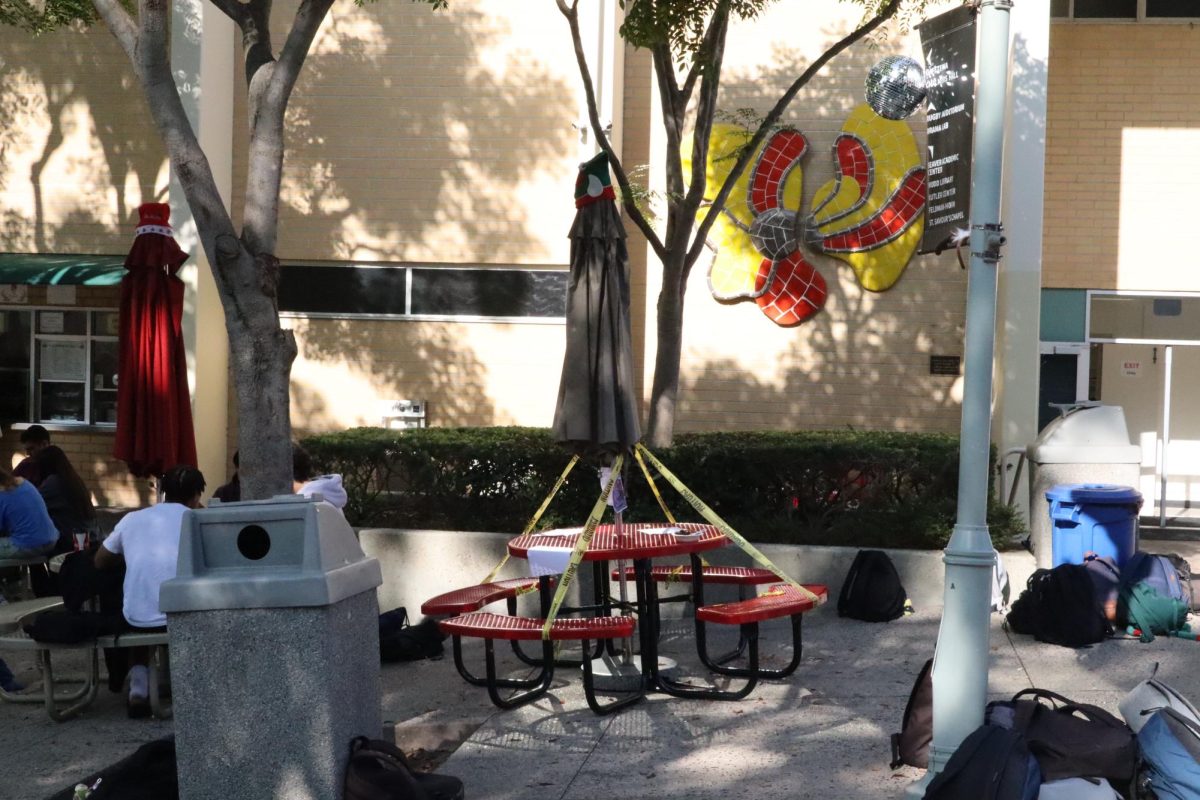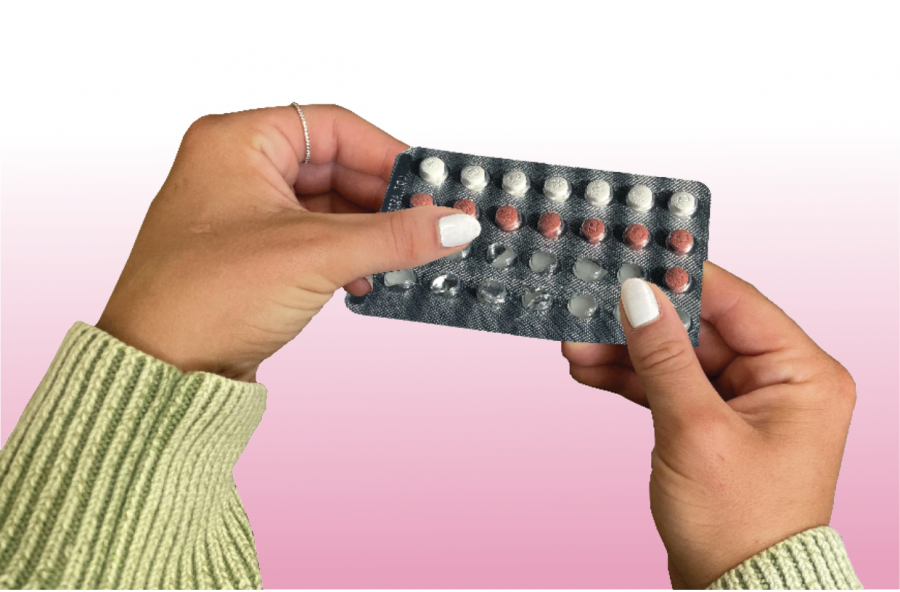Controversial Contraception
Teenage girls discuss how taking birth control has impacted their personal lives.
May 30, 2021
5 million women around the U.S. take some form of the birth control pill. Whether it be for contraception, acne prevention or menstrual regulation, “the pill” assists women in having control over their bodies. According to Planned Parenthood, even with the pill’s widespread benefits and societal support, many politicians seek to defund the institutions that hold it up. Recently, access to the pill has been in jeopardy, particularly due to the Trump Administration, which actively sought to make the birth control pill less accessible through healthcare.
For Oakwood student Sophia Diamond ’23, the pill was a fortunate solution to her long term struggle with acne and severe breakouts. After battling intense flare-ups, Diamond’s dermatologist and physician both recommended she go on the contraceptive medication. Diamond was one of the women who received free access to birth control as a result of the ACA.
“My skin was getting really bad, and there are hormones in certain birth control pills that react with the hormones in your skin,” Diamond said. “Since I’ve started taking [the pill], my skin is way clearer and I’ve stopped getting giant breakouts, but now I only get a bit here and there. It’s helped a ton.”
After the Affordable Care Act (ACA) was passed in 2010 under the Obama Administration, hundreds of thousands of insured women gained access to free contraceptive pills. However, as soon as Trump was elected into office, he began to roll back these mandates, according to HealthAffairs.com. Trump’s federal agencies declared it the right of companies to deny free access to birth control for their employees if it contradicts their moral or religious beliefs. Shortly after, the Supreme Court recently upheld the Trump administration’s rollback on the ACA’s contraceptive mandate.
In order to solve issues pertaining to teenage hormonal acne, doctors can prescribe birth control to offset breakouts. According to a 2017 study by Cutanea Life Sciences Inc, over 85% of teens said having acne caused them to struggle with confidence and self perception. . Crossroads student Cate Elson ’22 said birth control transformed her skin and enabled her to feel good about herself like she never had before.
“After years of struggling with my skin and trying different products, birth control allowed me to become my most confident self,” Elson said. “It instantly cleared up my skin on both my face and my back and has continued to keep it clear for the three years I’ve been on it. While it originally was meant to help my skin, it has also benefited me by helping me regulate my period and helping my cramps.”
Thousands of teenage girls like Diamond and Elson use contraceptive pills as a way to not only prevent pregnancy but also to mitigate painful menstrual cramps, regulate heavy periods, control cystic acne and overall improve their state of being, according to Planned Parenthood. Marlborough student Hannah Corwin ’22 said that until she started taking birth control, her unpredictable and painful menstrual cycle added anxiety to her already stressful life.
“In the past, I always felt like I had to be preparing for my period, and a lot of the time I would feel sick and be stuck at home in bed,” Corwin said. “Now I don’t have to deal with that, and the pill gives me more certainty and regularity, so I don’t always have to be worrying about when my period is going to come.”
Although some are accepting of others using the pill, others espouse stigmas regarding teenage birth, affecting the young women who take it. Kate Hasset ’22 said she turned to birth control to alleviate painful menstrual cramps and said that although she has not seen much taboo surrounding the pill in her social spheres, she has experienced stigma in religious settings.
“I went to a Christian school, and I recently ran into someone I used to go to school with,” Hassett said. “We were talking about medicines we take, and I mentioned birth control, and the person told me, ‘Jesus would be so mad at you.’ I’m Catholic, and in [Catholicism] it’s frowned upon.”
Maya Harbour ’21 said she also dealt with some of the negative stereotypes regarding the pill, despite the fact that she was taking it to relieve menstrual cramps.
“I feel like there’s a lot of misconceptions about the pill,” Harbour said. “My mom said to maybe not tell my father. I was confused because I literally just use it for my cramps. But, you know, some people assume it’s for other reasons.”
Oakwood junior Coco Cooley ’22 said that in addition to the lack of knowledge surrounding the pill’s purposes, there are a number of other misconceptions that surround the method of contraception. Cooley initially began taking the pill as a means of pregnancy-prevention, and though she had a positive experience with the first type of pill she was prescribed, she said she recognizes that many women do not.
“I think that people often forget that ‘the pill’ isn’t just one pill, and there are different types of birth control pills that use different hormones,” Cooley said. “You’re taking hormones, so obviously there are chances that it won’t work out at first and you have to try a different one. It doesn’t have to be this all or nothing experience.”
Cooley said she believes people often wrongly fear the pill and that proper contraceptive education, a major component of Planned Parenthood’s programs, is a key to supporting women and ensuring their health.
Planned Parenthood serves as the country’s biggest reproductive services provider, giving contraceptive prescriptions to many women and girls nationwide, according to their website. In an interview with The Chronicle, Cathy Unger, a national board member of the organization, said a recent poll showed Planned Parenthood as the most trusted provider of reproductive care, and thousands of women rely on it to preserve their right to have control over their bodies.
“The wonderful thing about Planned Parenthood is that it allows people to make their own choices about what they want to do with their bodies,” Unger said. “It’s a nonjudgmental way of dealing with people with regards to contraception and abortion. We talk to our patients to find out what is best for them, and we let them make their own decisions.”
Diamond said she understands the significance of an organization like Planned Parenthood in a nation that has systemically oppressed female reproductive rights. She said she recognizes that Planned Parenthood provides a multitude of services for around 2.4 million women that rely on its programs and resources, and she is nervous about the possibility of a world without it.
“It scares me that Planned Parenthood could be taken away from this country because even though [the organization] provides free birth control for those who need it, it’s not just about birth control,” Diamond said. “Planned Parenthood provides sex education and other resources for women. And for those who need birth control, it’s not just about sex. The pill is used for so many things like girls who have painful periods or girls with bad acne, there’s more to it than contraception.”































